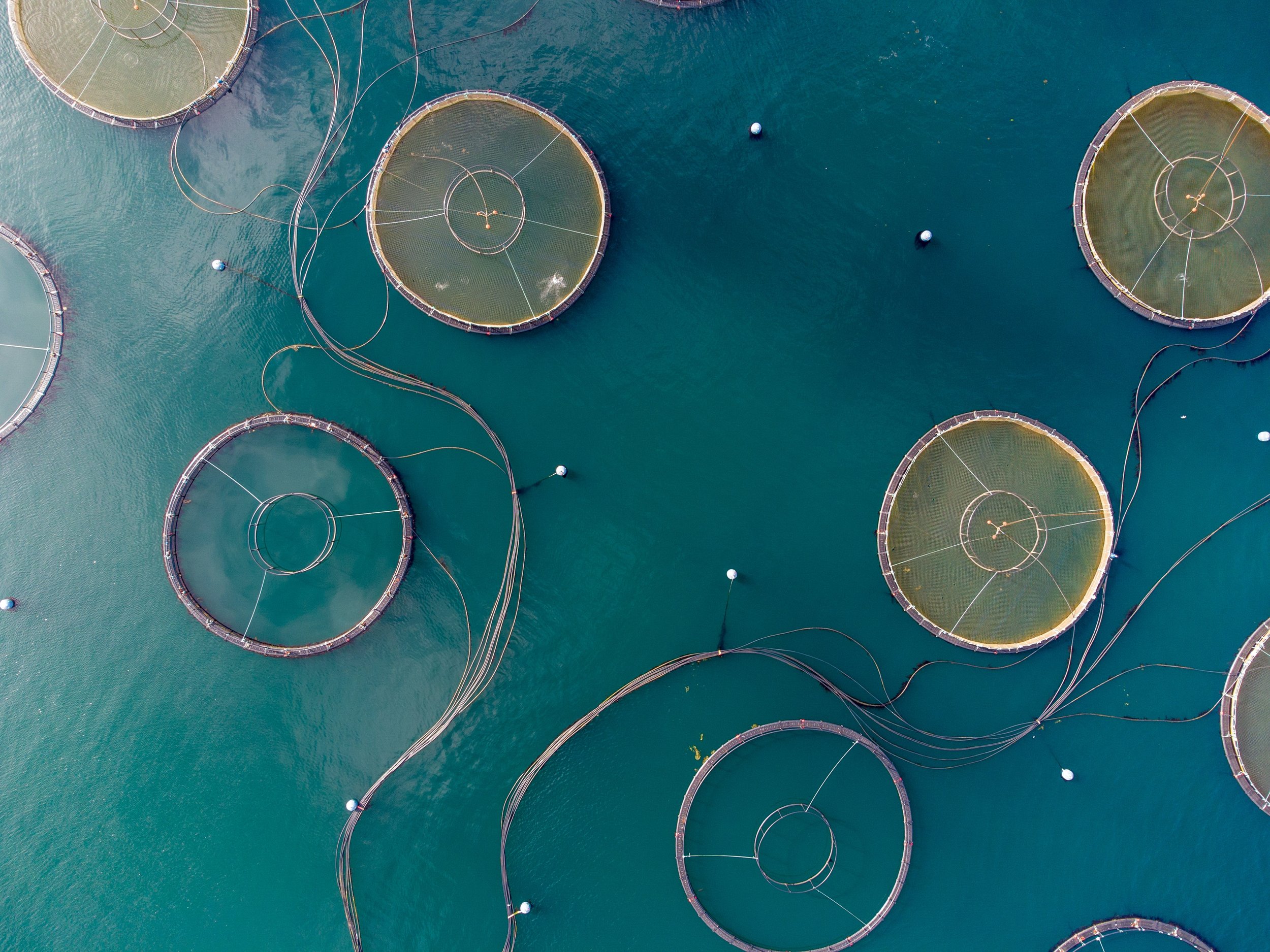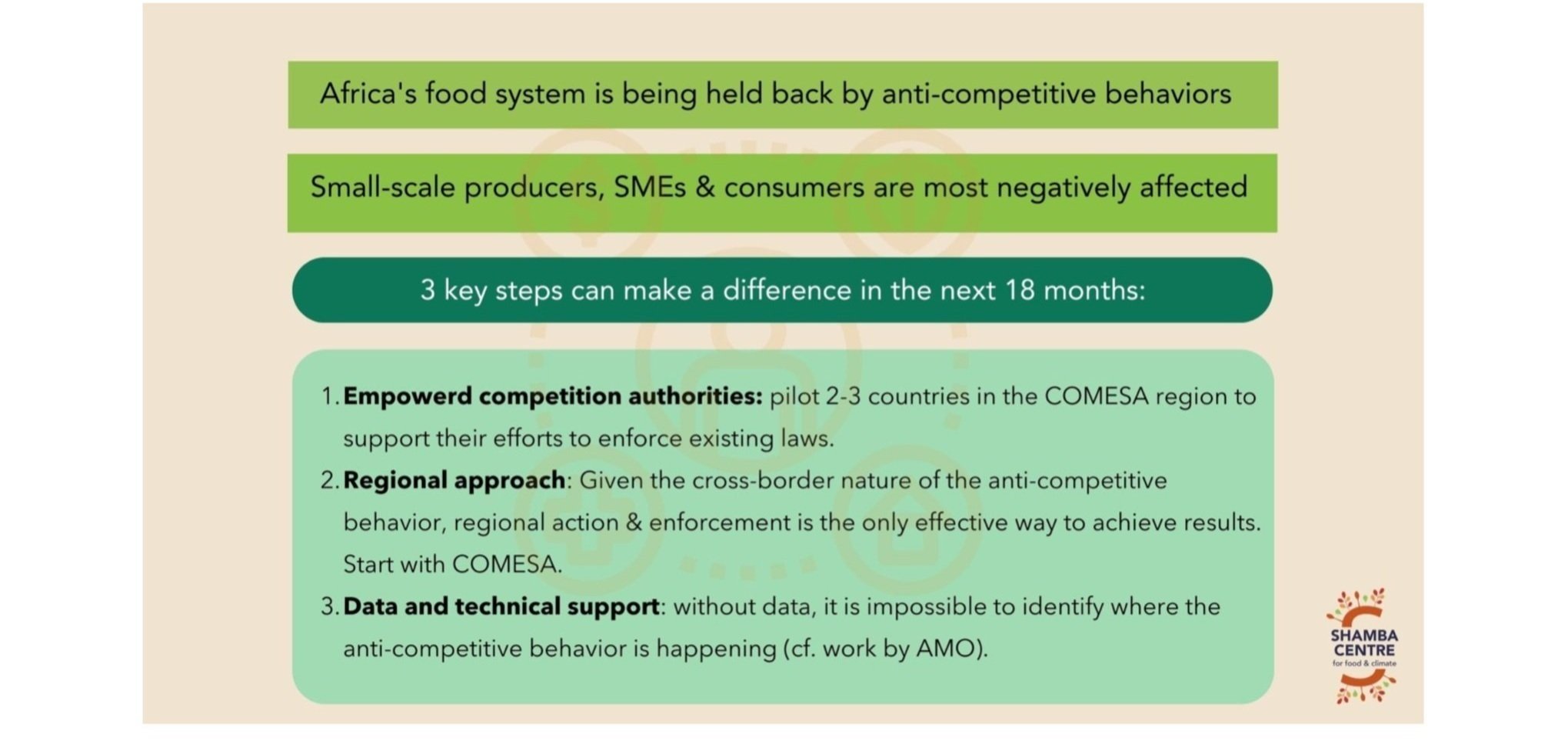
Reforming competition laws and policies in Africa
Excessive market concentration in African agri-food systems is harming producers, MSMEs, and consumers
The extreme levels of concentration in many African food and agricultural markets reveal dysfunctions and distortions. From input to retail, markets are concentrated and present high barriers to entry, leading to harmful cartels.
Anti-competitive conduct and concentrated market power in Africa is allowing large companies to earn excessive margins. As a result, prices paid to farmers are diminished while customers pay inflated prices.
Competition laws and policies need urgent reform to empower small agricultural businesses and farmers in Africa and thus enable the transition towards more inclusive and sustainable agri-food systems.
Large parts of Africa lack national competition laws, policies and/ or institutions
Ensuring the proper enforcement of rules against the abuse of market power starts with robust and effective laws, policies, and competition institutions.
According to a review of the state of competition laws, policies, and institutions in the 48 Sub-Saharan African countries
A reform agenda
In November 2023, the Shamba Centre published a landmark three-part report with a review of the impact of agri-food market concentration in Africa, a situation analysis of competition law and institutions in Sub-Saharan African countries and a reform agenda to strengthen competition regimes.
Entitled Empowering African Food Producers and Agricultural Enterprises Through Stronger Competition Law and Policy, the report provides the framework for advocacy and guidance at the country level.
The Shamba Centre continues to work with experts in Africa to document excessive market concentration in food systems and explain the negative impact on small producers and consumers.
The Impact of Weak Competition Law and Policy on Food Producers & Agricultural Enterprises in Africa
The State of Competition Regimes in Africa: A Situation Analysis & Review of Enforcement Experience in Agri-Food Systems
A Reform Agenda for African Competition Institutions to Empower African Producers and MSMEs in Agri-Food Systems
Further resources
-

Reforming competition regimes in Africa for sustainable food systems
Carin Smaller participated in a panel discussion on the need for competition to ensure resilient, inclusive and sustainable food systems. She also presented the key findings from the Shamba Centre’s publication Empowering African Food Producers and Agricultural Enterprises through Stronger Competition Law and Policy.
-

Excessive market concentration in the food sector
This presentation provides an explanation of the benefits of competition, and how stronger competition law and policy can transform food systems.
It reviews the current harms of anti-competitive behaviour in Africa, reviews the status of competition law and institutions on the continent and provides an agenda for reform.
-

Youth-led action to trigger competition reform in Africa
A recent panel session of young professionals organized during the World Food Forum discussed how food systems in Africa can be transformed through youth-led reform of competition law and policy.
The discussion focused on how current competition regimes could be leveraged to help end hunger in Sub-Saharan Africa, where nearly 25% of the population suffers from food insecurity.
-

Webinar on reforming competition law in Africa
The Shamba Centre hosted a webinar to explore pathways to reforming competition law and policy in African countries to regulate unfair market power in the food system and empower MSMEs.
Experts including Simon Roberts, Thembalethu Buthelezi, Eleanor Fox, Mor Bakhoum, Chilufya Sampa and was moderated by Myriam Hammadi.
-

Is market concentration killing salmons?
In the past few years, the series of mergers and acquisitions has allowed a few big companies to dominate the salmon industry. This has been the case in the three leading salmon exporting countries: Chile, Norway and Scotland.
-

The Chilean salmon: concentrated power with disastrous impact
Chile has seen significant growth in its salmon industry, which contributes greatly to regional employment and provides employment opportunities for a considerable number of women and young people.
Despite this success, the Chilean salmon industry faces a number of issues that need to be addressed.
-

Can we disrupt food systems and end hunger by reforming competition law?
For more than 20 years, concentration has been dramatically increasing in the food and agricultural markets, and lower-income countries are more badly affected than developed markets, because the markets are smaller, and the barriers are higher. This has a negative impact on small producers as well as on consumers.

